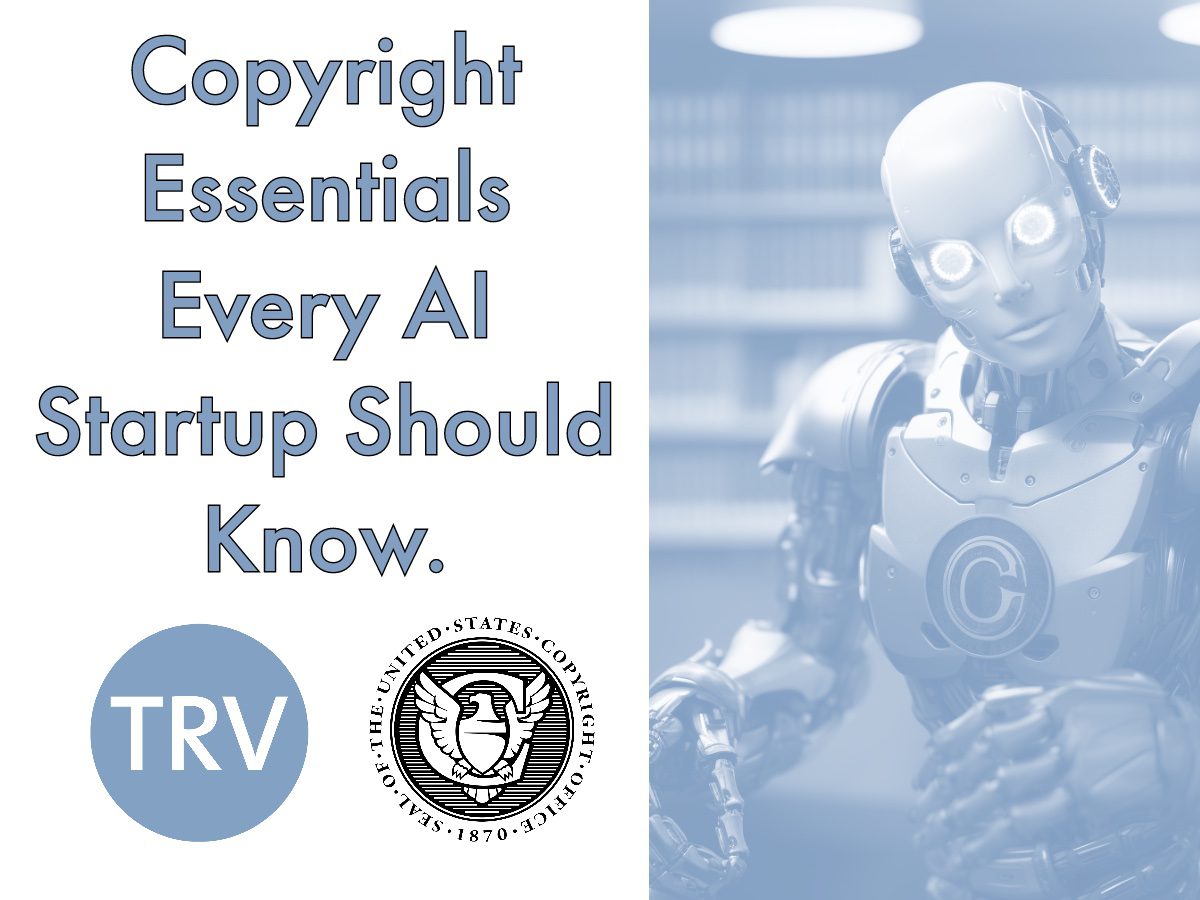Enrico Schaefer - September 12, 2023 - Artificial Intellience

Let’s begin by understanding what copyright is. Copyright is a form of intellectual property law that protects original works of authorship, including literary, dramatic, musical, and specific intellectual works. In the context of AI, this could range from the data you’re using to train your models to the output your AI generates. (See Traverse Legal’s Copyright page.)
Now, you might wonder how copyright intersects with artificial intelligence. The answer is more complex than you might think. For instance, if your AI scrapes data from various sources for analysis, you must consider whether that data is copyrighted. Similarly, if your AI is involved in text or image recognition, the content it interacts with may also be subject to copyright laws.
How your AI interacts with data can have significant legal implications. Ignorance is not a defense in the eyes of the law, so it’s crucial to be proactive in understanding these issues.
There is a lot of confusion surrounding applying copyright law to artificial intelligence and machine learning tools. The US Copyright Office recently requested input on these issues as it tries to formulate its policies around AI-generated content.
One of the most prevalent misconceptions is that it is free to use if something is publicly available online. This is a dangerous assumption that could lead to legal repercussions. Just because data or content is easily accessible does not mean it is free from copyright protections. (Learn more about how Traverse lawyers are protecting AI companies here).
Another common misunderstanding is the belief that copyright issues are automatically avoided if your AI system generates a piece of content. This is not necessarily the case. The data used to train the AI, the algorithms employed, and even the output could potentially infringe on existing copyrights.”
Disposing of these myths is essential because operating under these assumptions can expose your startup to significant legal risks. Being well-informed is the first step in mitigating these risks.
Fair Use is a doctrine in copyright law that allows limited use of copyrighted material without requiring permission from the rights holders. It is essential to understand the boundaries of Fair Use, especially regarding AI. For example, using copyrighted data for research might be considered Fair Use, but commercializing that data likely is not.
Another area that requires attention is the distinction between Open Source and Copyrighted Material. Open Source material may seem safe and easy, but it has its licenses and restrictions. On the other hand, using copyrighted material without proper authorization can lead to legal complications.
Understanding these gray areas is crucial for AI startups. It’s not just about avoiding legal pitfalls; it is also about making informed decisions that can impact the growth and credibility of your business.
One aspect that often gets overlooked is how to protect the intellectual property generated by your AI. Copyrighting the output of your AI can be a complex process, but it’s essential for safeguarding your startup’s assets. The first step is to identify what can be copyrighted, including data sets, algorithms, or even the generated content.
Licenses also play a pivotal role in this context. There are various types of licenses, ranging from permissive to restrictive, and choosing the right one can have long-term implications for your startup. For instance, a permissive license like MIT allows others to do almost anything they want with your project, whereas a more restrictive license like GPL requires any derivative work to be open-sourced.
Proactively protecting your work is a legal necessity and a strategic move that can add value to your startup. (continued after the video below)
One of the most eye-opening cases in recent times is the lawsuit filed by Sarah Silverman and other authors against OpenAI and Meta. This case serves as a cautionary tale for several reasons:
The lawsuit alleges that the AI models were trained on copyrighted books acquired from shadow libraries. This highlights the importance of ensuring that your training data is sourced legally. The authors did not permit their works to be used, emphasizing the need for informed consent when using copyrighted material.
The lawsuit isn’t just about copyright infringement; it also includes charges of negligence and unjust enrichment, showing that the legal consequences can be multifaceted and severe. This case underscores the complexities and risks of navigating copyright issues as an AI startup. It is not just about understanding the law; it’s about implementing practices to safeguard your startup from similar pitfalls.
Given copyright’s complexities and potential pitfalls, AI startups must take proactive measures. Here are some actionable steps to consider:
Navigating the maze of copyright laws may seem daunting, but it’s essential to running a thriving AI startup. By understanding the basics, dispelling common myths, and learning from real-world cases, you can take steps to protect your startup from legal pitfalls. Remember, it’s about avoiding lawsuits and building a sustainable and ethical business.